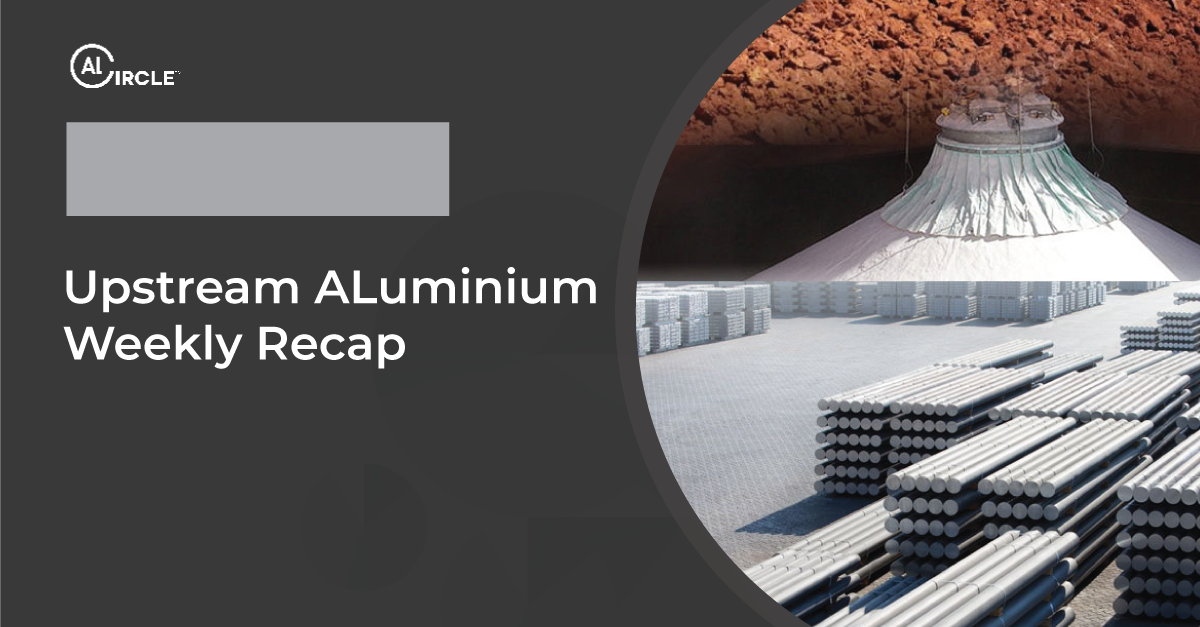In recent developments across the global aluminium market, a wave of volatility is shaking confidence in trade flows, regional pricing, and long-term investment decisions. From sudden legal reversals in the United States to softening premiums in Asia and ripple effects from routine maintenance in China, the aluminium value chain is caught in a tangle of uncertainty.

A dramatic policy flip-flop in the United States has raised alarm bells in the global aluminium trading community. The US Federal Court first suspended certain import tariffs presumably offering relief to downstream industries only to reinstate them within 24 hours. This abrupt reversal has not only puzzled stakeholders but has also triggered anxiety over the predictability of US trade policy.
Meanwhile, Japan the largest Asian importer of aluminium is seeing a continued decline in its aluminium premiums for Q3 2025. The latest drop is driven by two interlinked factors – elevated stockpiles and muted demand, particularly from the automotive and electronics sectors. While Japan is traditionally viewed as a bellwether for Asian demand, this softness further underscores the global cooling trend in industrial consumption.
The interconnectedness of the aluminium market is further underscored by how China’s routine maintenance shutdowns in April have created a ripple effect across India’s price charts. Alumina supply tightness and temporary aluminium output reductions in China disrupted regional supply chains, causing pricing dislocations in India, a key secondary producer and consumer.
Aluminium prices declined by 0.48 per cent, closing at INR 236.45 (USD 2.85), as seasonal domestic sluggishness and persistent global trade uncertainties weighed on market sentiment. However, the downside remains limited due to rising alumina prices, fuelled by supply constraints and refinery maintenance activities in major Chinese regions like Shanxi and Guizhou.
Let’s see how recent developments in Guinea’s mining sector have significantly impacted market-
Guinea’s military-led government has revoked 129 mineral exploration permits in a decisive move to tighten control over the nation’s vast mineral resources. The cancellations, primarily affecting gold exploration licenses, are part of a broader strategy to reclaim underutilised assets and reallocate them to more active investors. This action follows an earlier revocation of 51 mining licenses this month, encompassing bauxite, gold, diamond, graphite, and iron concessions that were either dormant or not yet operational.
Guinea Alumina Corporation (GAC), a subsidiary of Emirates Global Aluminium (EGA), is currently facing a significant operational challenge due to a suspension of its bauxite exports by Guinean customs authorities. This suspension, initiated in October 2024, stems from unresolved issues between GAC and the Guinean government, primarily concerning GAC’s commitment to construct a domestic alumina refinery.
The recent disruptions in Guinea’s bauxite sector have led to a halt in the declining trend of imported bauxite ore prices, resulting in a market rebound. On May 14, Guinean authorities revoked mining licenses for over 40 companies, including Axis Minérales, prompting production suspensions and force majeure declarations from some exporters. Subsequent license revocations on May 17 affected more than 100 additional companies, further raising concerns about bauxite supply.
The alumina sector
Alcoa’s proposed expansion of its Huntly bauxite mine in Western Australia’s Jarrah forests has entered the public consultation phase, aiming to supply the Pinjarra alumina refinery through 2045. This project is part of a broader strategy to extend mining operations at Huntly and Willowdale mines until 2027.
Simultaneously, Western Australia’s resources sector is experiencing unprecedented growth, with employment reaching a record 135,693 full-time equivalent positions in 2024. Alumina and bauxite have been significant contributors to this surge, marking the eighth consecutive year of job market expansion driven by the mining industry.
However, global alumina production faces challenges. In April 2025, output from China and Europe declined, leading to a 2.48 per cent drop in global production compared to March. This downturn contrasts with the robust performance in the first quarter of the year and underscores the importance of stable supply sources like Western Australia’s expanding operations.
Other significant news
Aluminium Bahrain B.S.C. (Alba), the world’s largest single-site aluminium smelter, has formed a strategic partnership with the National Fire Protection Association® (NFPA®), a U.S.-based, self-funded nonprofit organisation with nearly 130 years of experience dedicated to promoting fire prevention and safety worldwide.
The government has restored benefits totalling INR 18,233 crore ($218.8 million) under the Remission of Duties and Taxes on Exported Products (RoDTEP) scheme for exports by Advance Authorisation holders, Export-Oriented Units (EOUs), and units based in Special Economic Zones (SEZs). This move provides a substantial boost to the aluminium and mining industries.
RX, the global leader in organising world-class events and the force behind the prestigious ALUMINIUM exhibition in Düsseldorf, has announced a groundbreaking addition to its portfolio: ALUMINIUM Arabia. Scheduled to debut at The Arena Riyadh from 27 to 29 April 2026, this premier event will shine a spotlight on the dynamic growth and emerging potential of Saudi Arabia’s aluminium industry.
















